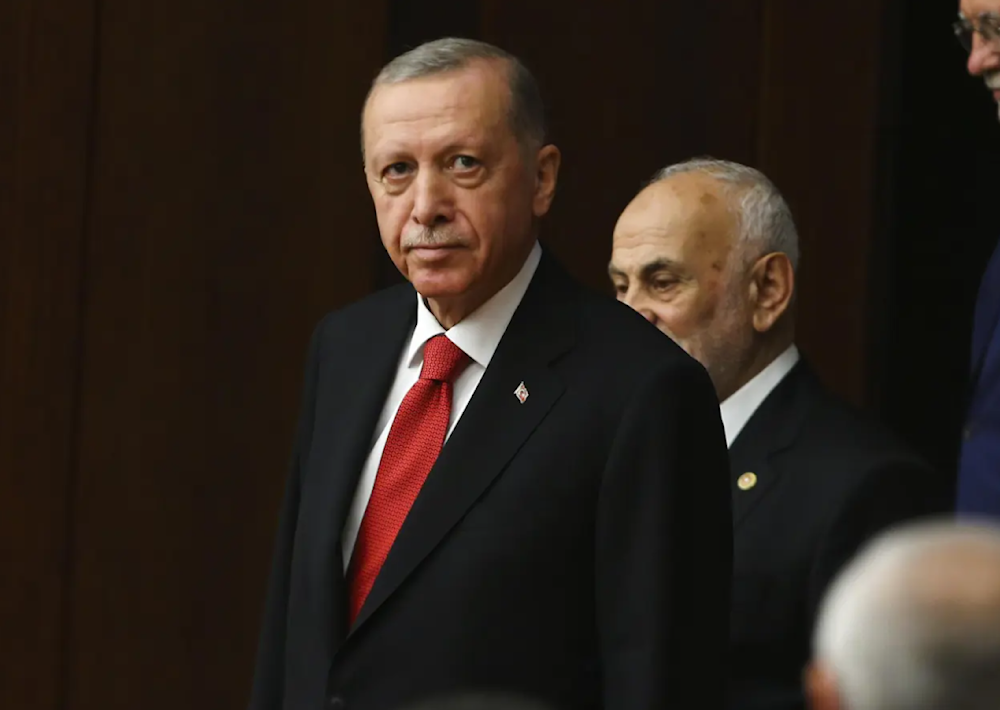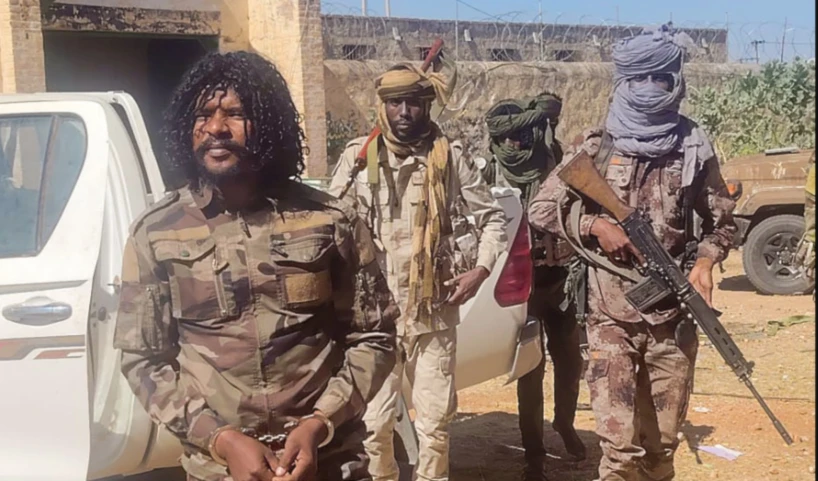Erdogan says alternative routes needed amid recent war on Iran
Iran has repeatedly asserted its right to close the strategic Strait of Hormuz, a key artery for oil and liquefied natural gas flows, in response to Israeli aggression.
-

Turkish President Recep Tayyip Erdogan joins legislators elected to the Grand National Assembly of Turkey in the May 14 parliamentary elections and attend their first parliamentary session to take oath in Ankara on June 2, 2023 (AP)
Turkish President Recep Tayyip Erdoğan emphasized on Friday that recent instability around the Strait of Hormuz has made alternative transportation routes essential.
"The importance of logistics lines that ensure the circulation of people and goods in the global economy is apparent," Erdogan stated, adding that "recent tensions and uncertainties have indicated how important new transportation routes are."
Iran has repeatedly asserted its right to close the strategic Strait of Hormuz, a key artery for oil and liquefied natural gas flows, in response to Israeli-US aggression.
In 2023, the International Energy Agency reported that an average of 20.9 million barrels per day of crude oil and LNG passed through the strait, with 83% destined for Asian countries such as China, India, Japan, and South Korea.
Iran warns of NPT withdrawal, Strait of Hormuz closure after US attack
Following the United States’ airstrikes on Iranian nuclear facilities, senior Iranian lawmakers have raised the possibility of withdrawing from the Nuclear Non-Proliferation Treaty (NPT) and closing the strategic Strait of Hormuz in retaliation.
The warnings come after US President Donald Trump announced, in a post in Truth Social, on Sunday at dawn, that the United States carried out what he described as a "very successful attack" on three Iranian nuclear facilities: Fordow, Natanz, and Isfahan.
Esmail Kowsari, a prominent member of Iran’s National Security and Foreign Policy Committee in Parliament, affirmed that the country had already implemented protective measures to safeguard its nuclear infrastructure. He dismissed allegations of severe damage to Iran’s nuclear program, calling them “baseless claims," and insisted that “Tehran has accurate intelligence disproving such assertions.”
Kowsari revealed that authorities are actively weighing a possible exit from the NPT. “We are reviewing the option of withdrawing from the Nuclear Non-Proliferation Treaty,” he said, noting that the parliamentary committee would soon hold an emergency session to assess the American attack and formulate Iran’s official response.
Reiterating Iran’s commitment to Resistance, Kowsari warned that “our armed forces will certainly continue striking the Zionist entity,” adding, “US military bases across the region will not remain secure. Hitting them will be far easier than targeting the Israeli regime.”
He further cautioned that Iran is prepared to escalate militarily if necessary, stating, “The closure of the Strait of Hormuz is on the table. We will definitely implement it if the situation requires.”

 3 Min Read
3 Min Read










